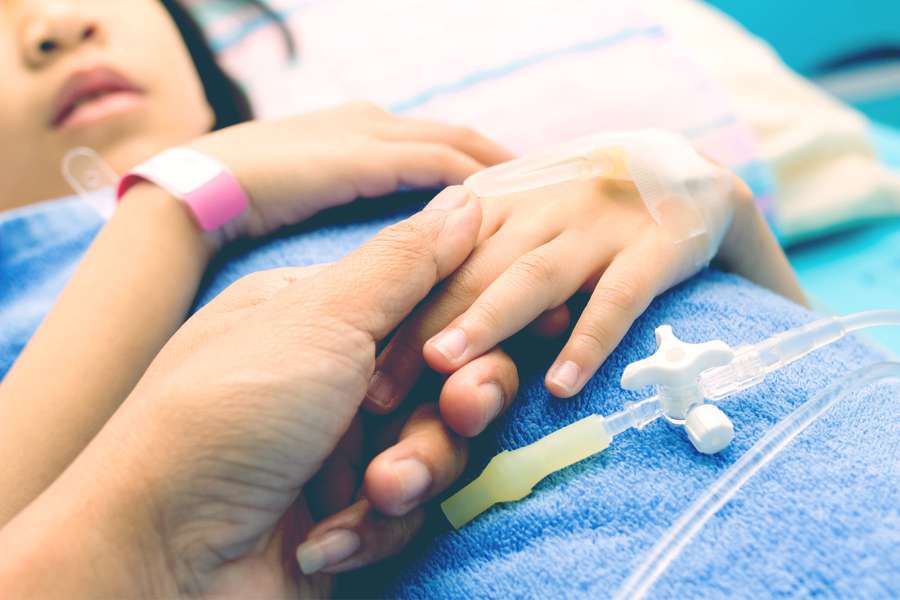A genetic modification therapy designed for treating pediatric leukemia has drawn both praise and caution from a Catholic bioethicist, after recently being approved by the Food and Drug Administration. While a “promising” use of gene modification technology, the treatment still has potentially deadly side effects - which could make the risks outweigh the benefits, says Fr. Tadeusz Pacholczyk, Ph.D., of the National Catholic Bioethics Center.
Gene therapies have garnered public attention for their potential medical significance, and because of problematic research procedures surrounding their development and the moral questions they raise. However, the new treatment, called Kymriah, is a hopeful development and a morally licit use of genetic modifications in medicine, Fr. Pacholczyk told CNA.
Because the therapy only uses matured cells from the patient, Fr. Pacholczyk explained, it does not entail the same ethical problems as other forms of gene therapy under investigation — including therapies which destroy human embryos or make modifications of cells which can be passed onto future generations.
Instead, developing therapies which make “genetic changes to help our immune system do better what it is supposed to do, namely identifying and eliminating various dangers from the body, is a praiseworthy goal,” he said. “To the extent that side effects can be limited or controlled, the therapy appears to be very promising, with reports of high success rates in slowing or even eliminating certain childhood cancers like pediatric acute lymphoblastic lymphoblastic leukemia,” Fr. Pacholczyk said.
Kymriah, developed by drug company Novartis, is a highly personalized form of immunotherapy called CAR T-cell therapy. The procedure, short for “Chimeric Antigen Receptor T-cell Therapy,” takes a person’s T-cell — a kind of white blood cell — and genetically modifies it to contain a new kind of protein. This protein, called a chimeric antigen receptor, or CAR, helps detect certain kinds of cancer cells. When the body’s T-cells are reintroduced to the body, they are now able to find and kill the cancer cells.
The treatment is specialized to attack a kind of pediatric cancer called acute lymphoblastic lymphoblastic leukemia, or ALL. ALL is a bone marrow and blood cancer, and is one of the most common childhood cancers in the United States. According to the FDA, over 3,000 patients under the age of 20 are diagnosed with ALL each year. The treatment will be offered to patients who have not responded to other existing treatments, or those whose cancer has returned after initial treatment.
Fr. Pacholczyk emphasized that there are some ethical concerns doctors and patients considering this treatment should investigate, particularly the potential for side effects the treatment can cause in some individuals. “One ethical concern raised by this therapy centers on the question of whether the risks may be greater than the benefits for particular patients,” he said.
In some patients, treatment with Kymriah can cause a severe immune response. Sometimes, when the white blood cells are rewritten, they can lead to a severe immune response called cytokine release syndrome, or CRS, when they are reintroduced. Symptoms of this syndrome can include high fever, flu symptoms, dangerously low blood pressure, and organ damage. It can also cause neurological symptoms, including swelling of the brain, which can be fatal.
In light of these dangerous side effects, the FDA also approved the expansion of use of an immune suppressing drug for treatment for CRS. The drug has shown to be an effective treatment for CRS after treatment with CAR-T cells. The FDA will also require Novartis to continue monitoring Kymriah after its release for long-term side effects and other harmful side effects.
With the control of the dangerous side effects, and weighing the risks of the treatment against its benefits, however, the new gene therapy looks “promising,” Fr. Pacholczyk said.

